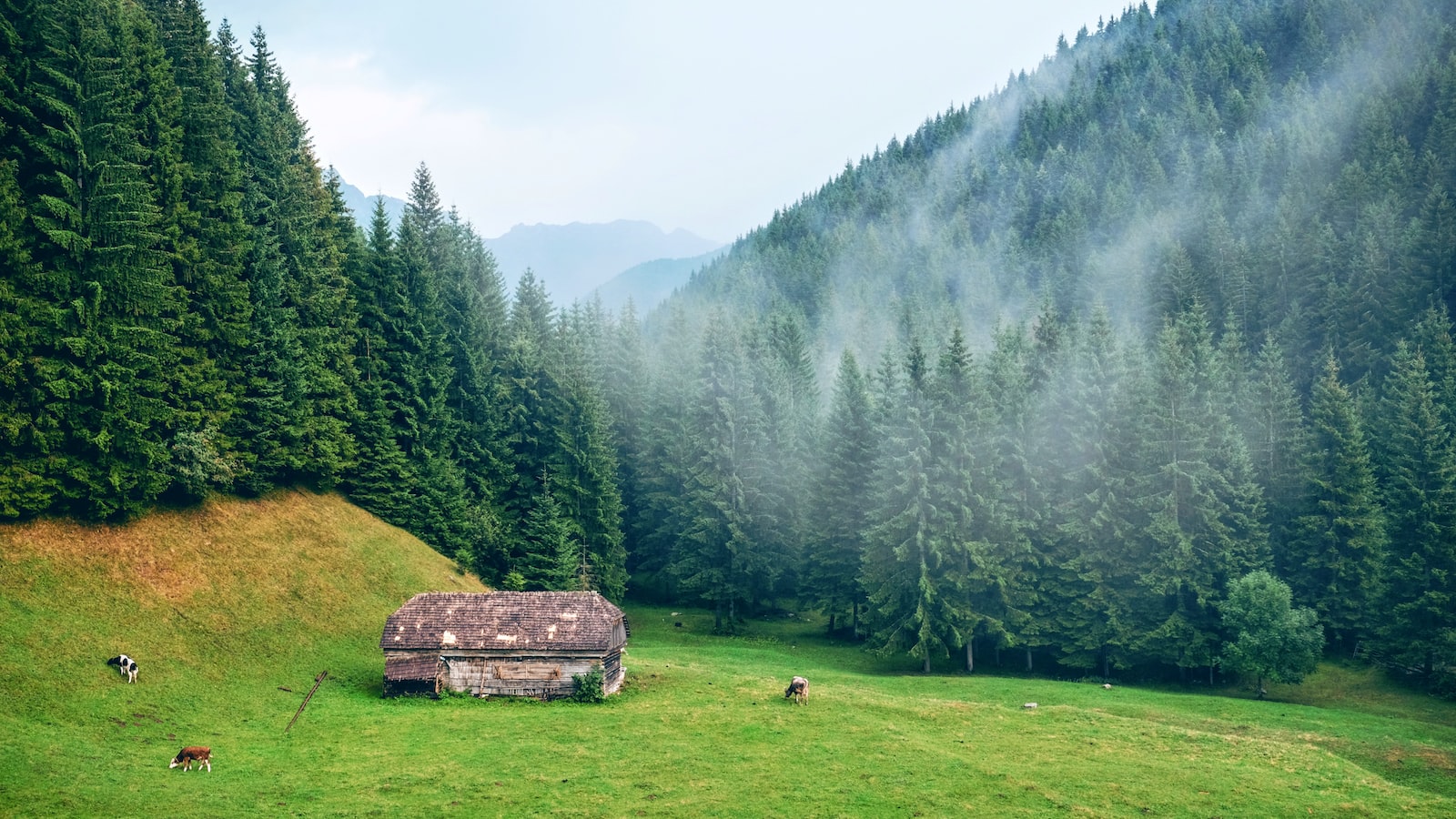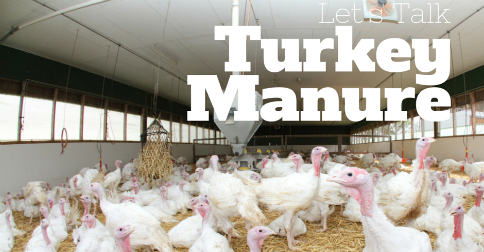Feathers, gobbles, and an impressive wingspan, turkeys have always been a flying enigma, but there’s one element about them that the world seldom ponders. Yes, we’re talking about the not-so-glamorous topic of turkey poop. Pause for a moment and envision a wild flock gallivanting through the countryside, spreading Nature’s wonder among the fields they roam. It may sound peculiar, but this natural byproduct possesses hidden agricultural potential. So, dear reader, join us on a journey as we delve into the intriguing question: is turkey poop good fertilizer? Let’s take a plunge into this fecal frontier, uncovering the secrets that lie within these ubiquitous droppings.
1. The Nutrient-rich Composition of Turkey Manure: A Viable Fertilizer Option for Your Garden
When it comes to finding the perfect fertilizer for your garden, have you ever considered turkey poop? Yes, you read that right! Turkey manure is a surprising contender in the world of organic fertilizers due to its nutrient-rich composition and numerous benefits.
Why is Turkey Poop Good Fertilizer?
1. Rich in nitrogen: Turkey manure contains a high concentration of nitrogen, making it an excellent source of this essential nutrient for your plants. Nitrogen stimulates healthy leaf and stem growth, resulting in lush green foliage.
2. Balanced nutrient content: Along with nitrogen, turkey manure also provides a good balance of other crucial nutrients like phosphorus and potassium. These elements play vital roles in promoting robust root development and strong flowering, respectively.
3. Slow-release properties: One of the advantages of using turkey manure as fertilizer is its slow-release nature. This means that the nutrients are gradually released into the soil, ensuring a steady supply for your plants over time.
| Features | Tips |
|---|---|
| Fresh and readily available | Compost turkey manure before using it on delicate plants |
| Cost-effective | Apply turkey manure as a top dressing for existing vegetation |
| Environmentally friendly | Avoid using excessive amounts to prevent nutrient runoff |

2. Leveraging Turkey Manure’s Benefits: An Insightful Guide to Proper Application and Environmental Considerations
Is Turkey Poop Good Fertilizer?
In the world of organic gardening, the benefits of using natural fertilizers cannot be overstated. While commonly overlooked, turkey manure is a surprisingly potent nutrient source that provides numerous advantages to plants when used properly. This insightful guide aims to explore the proper application and environmental considerations of leveraging the benefits of turkey manure as a fertilizer.
Before delving into the application techniques, it is important to understand the key features and tips that make turkey manure an excellent choice for fertilizing your plants:
| Features & Tips | Benefits |
|---|---|
| Nutrient-rich composition | Provides essential macronutrients for plant growth |
| High organic matter content | Improves soil structure and enhances water retention capacity |
| Minimal odor when properly composted | Makes application more pleasant without disturbing neighbors |
When it comes to applying turkey manure, a few environmental considerations must be taken into account. First, ensure that the manure is properly composted to reduce the risk of spreading pathogens or weed seeds. Composting also helps eliminate the strong odor, making it more pleasant to handle. Additionally, it is crucial to adjust the application rates to prevent nutrient overload, which could harm plants and contribute to water contamination. Lastly, be mindful of any local regulations or restrictions on using animal manure as fertilizer, as these may vary depending on your region.
In conclusion, turkey manure can indeed be a valuable fertilizer for your garden when applied correctly. By understanding its benefits and considering the environmental factors, you can maximize the advantages of this natural resource while promoting healthy plant growth and sustainability in your gardening endeavors.

3. Turkey Manure Fertilizer: Maximizing Its Potential for Superior Crop Growth and Soil Health
When it comes to fertilizers, turkey manure may not be the first thing that comes to mind. However, it is a hidden gem for farmers and gardeners alike. Despite the initial skepticism surrounding its use, turkey manure has proven to be a valuable resource for maximizing crop growth and improving soil health.
One of the key benefits of turkey manure fertilizer is its high nutrient content. Packed with essential elements like nitrogen, phosphorus, and potassium, it provides a well-balanced and readily available source of nutrition for plants. This nutrient-rich composition helps plants in various ways, such as promoting robust growth, supporting vibrant foliage, and enhancing flowering and fruiting. Moreover, turkey manure fertilizer also contains micronutrients like zinc, copper, and iron, which are crucial for healthy plant development and overall nutrient absorption.
| Features/Tips | Description |
|---|---|
| 1. Organic and Sustainable: | Turkey manure fertilizer is an excellent choice for those looking for organic alternatives. It is an eco-friendly option that reduces the need for synthetic fertilizers while minimizing the carbon footprint. |
| 2. Versatility: | This fertilizer can be used on a wide range of crops, including vegetables, fruits, herbs, and ornamentals. It suits different soil types and can be applied through various methods, such as surface application, side dressing, or incorporating it directly into the soil. |
| 3. Soil Enhancement: | By adding turkey manure fertilizer, you not only nourish your plants but also improve the overall health of your soil. It helps in retaining moisture, enhancing soil structure, and promoting beneficial microbial activity, leading to long-term sustainability. |
So, the next time you ponder about the utility of turkey poop, remember its incredible potential as a superior fertilizer. With its nutrient-rich properties and numerous benefits, turkey manure fertilizer can take your crop growth and soil health to new heights. Embrace this organic approach and witness the wonders it brings to your garden or farm!

4. From Waste to Resource: Sustainable Farming Practices and Turkey Manure Fertilization
Turkey manure, also known as turkey poop, may not be the first thing that comes to mind when thinking about fertilizers, but it is indeed a valuable resource for sustainable farming practices. This organic waste can be transformed into a nutrient-rich fertilizer through proper management techniques, making it an environmentally friendly choice for farmers.
One of the main benefits of using turkey manure as a fertilizer is its high nutrient content. It is rich in nitrogen, phosphorus, and potassium, which are essential for plant growth. By applying turkey manure to the soil, farmers can provide plants with the necessary nutrients they need to thrive. Additionally, turkey manure improves soil structure and moisture retention, leading to better water and nutrient absorption by plants.
Using turkey manure as a fertilizer also has ecological advantages. Instead of letting this waste go to waste, farmers can repurpose it, reducing the environmental impact of traditional waste management practices. This not only helps to mitigate pollution but also decreases reliance on synthetic chemical fertilizers. By incorporating turkey manure into their farming practices, farmers contribute to a more sustainable and regenerative agricultural system.
To maximize the benefits of turkey manure fertilization, here are some key features and tips to keep in mind:
Table:
| Feature/Tips | Benefits |
|---|---|
| 1. Proper composting | Ensures that the manure is fully decomposed and reduces odor |
| 2. Balanced application | Prevents nutrient imbalances and avoids burning plants |
| 3. Timing matters | Apply in fall or early spring to allow ample time for breakdown and absorption by plants |
In conclusion, turkey manure can indeed be an excellent choice as a fertilizer due to its nutrient-rich composition and the environmental advantages it offers. Incorporating sustainable farming practices and utilizing turkey poop as a resource not only benefits crop production but also contributes to a greener and more eco-friendly agricultural industry.
Frequently Asked Questions
Q: Is turkey poop good fertilizer?
A: Absolutely! Here’s the lowdown on this pungent poultry poo.
Q: What makes turkey poop a fantastic fertilizer?
A: Well, it’s “the ultimate package deal” of nutrients!
Q: Can you give examples of the nutrients found in turkey poop?
A: You bet! It’s jam-packed with nitrogen, phosphorus, and potassium – the holy trinity of plant growth! As we bid adieu to this intriguing exploration into the world of turkey poop as a potential fertilizer, it’s time to reflect upon the wondrous interplay between nature’s waste and our gardens. While some of us may find ourselves wistfully pondering the possibilities, others might quietly chuckle at the absurdity of these ponderings. Yet, in this whirlwind of conflicting emotions, one truth remains: nature’s brilliance knows no bounds.
So, dear readers, as we dust off our hands and wrap up this peculiar investigation, let us appreciate the innate curiosity that led us down this aromatic path. For in our quest to uncover the hidden powers of turkey droppings, we have been confronted with the age-old question: can the odorous remnants of a majestic bird transform our barren lands into fertile gardens?
Through the reaches of time itself, gardeners have tirelessly sought the perfect blend of nutrition and sustainability. While some swear by traditional fertilizers, others are inspired to embark upon uncharted territories, unearthing answers from the most unlikely of sources. And tucked amidst these pioneering souls, we find ourselves, contemplating the worthiness of turkey droppings in our quest for botanical excellence.
But, before we relinquish this debate to eternity, let us remember the enchanting dance that is nature’s cyclical symphony. From the very beginning, the circle of life has dictated that what is given must someday be returned: a nutrient-rich offer we simply cannot refuse. So, in our humble quest for answers, we stumbled upon this feathered gift, a byproduct of the sustenance turkey takes from the earth.
While the tale of turkey poop fertilizer may not showcase grandeur nor splendor, it has allowed us to glimpse into nature’s boundless resourcefulness. It has taught us that even in the most humble and seemingly inconsequential of expressions, nature holds secrets we dare not dismiss.
So, as we bring this peculiar chapter to a close, let us marvel at the mysteries of the natural world that continue to fascinate and bewilder us. And as gardeners tend to their flourishing plots, they may choose to embrace the wisdom of the ages or dare to tread upon roads less traveled, finding solace in the symphony of turkey poop and the beauty that arises from the humblest beginnings.
- When to Put Weed and Feed on Lawn in Michigan - October 16, 2023
- When to Fertilize Potatoes Plants - October 16, 2023
- Can You Plant Clover in the Spring - October 16, 2023
Contents
- 1 1. The Nutrient-rich Composition of Turkey Manure: A Viable Fertilizer Option for Your Garden
- 2 Why is Turkey Poop Good Fertilizer?
- 3 2. Leveraging Turkey Manure’s Benefits: An Insightful Guide to Proper Application and Environmental Considerations
- 4 3. Turkey Manure Fertilizer: Maximizing Its Potential for Superior Crop Growth and Soil Health
- 5 4. From Waste to Resource: Sustainable Farming Practices and Turkey Manure Fertilization
- 6 Frequently Asked Questions

